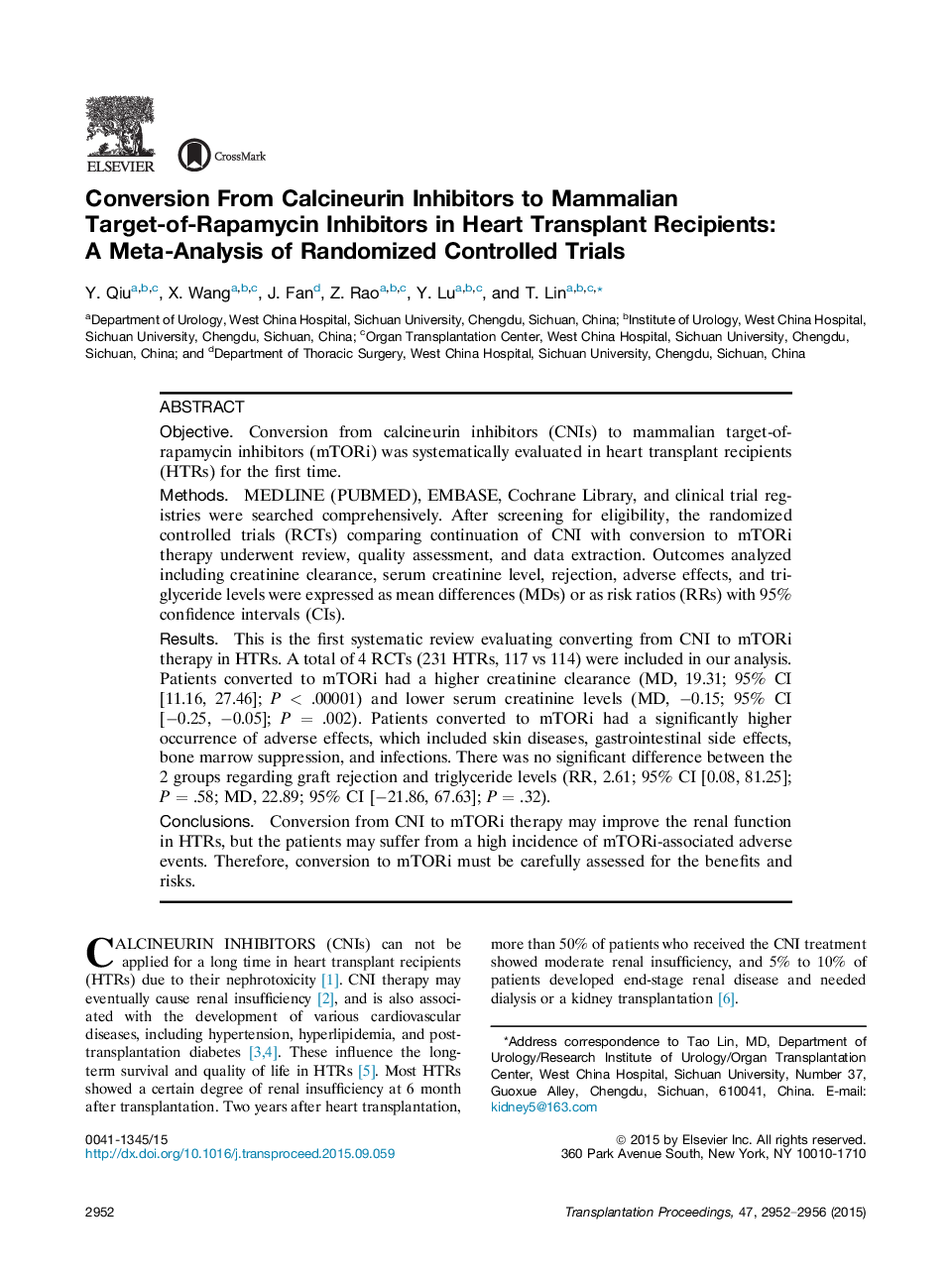| Article ID | Journal | Published Year | Pages | File Type |
|---|---|---|---|---|
| 4255851 | Transplantation Proceedings | 2015 | 5 Pages |
•This is the first systematic review assessing converting from CNI to mTORi in HTRs.•Patients converted to mTORi may improve the renal function.•Patients with mTORi had a significantly higher incidence of adverse effects.•There was no significant difference in graft rejection and triglyceride levels.
ObjectiveConversion from calcineurin inhibitors (CNIs) to mammalian target-of-rapamycin inhibitors (mTORi) was systematically evaluated in heart transplant recipients (HTRs) for the first time.MethodsMEDLINE (PUBMED), EMBASE, Cochrane Library, and clinical trial registries were searched comprehensively. After screening for eligibility, the randomized controlled trials (RCTs) comparing continuation of CNI with conversion to mTORi therapy underwent review, quality assessment, and data extraction. Outcomes analyzed including creatinine clearance, serum creatinine level, rejection, adverse effects, and triglyceride levels were expressed as mean differences (MDs) or as risk ratios (RRs) with 95% confidence intervals (CIs).ResultsThis is the first systematic review evaluating converting from CNI to mTORi therapy in HTRs. A total of 4 RCTs (231 HTRs, 117 vs 114) were included in our analysis. Patients converted to mTORi had a higher creatinine clearance (MD, 19.31; 95% CI [11.16, 27.46]; P < .00001) and lower serum creatinine levels (MD, −0.15; 95% CI [−0.25, −0.05]; P = .002). Patients converted to mTORi had a significantly higher occurrence of adverse effects, which included skin diseases, gastrointestinal side effects, bone marrow suppression, and infections. There was no significant difference between the 2 groups regarding graft rejection and triglyceride levels (RR, 2.61; 95% CI [0.08, 81.25]; P = .58; MD, 22.89; 95% CI [−21.86, 67.63]; P = .32).ConclusionsConversion from CNI to mTORi therapy may improve the renal function in HTRs, but the patients may suffer from a high incidence of mTORi-associated adverse events. Therefore, conversion to mTORi must be carefully assessed for the benefits and risks.
